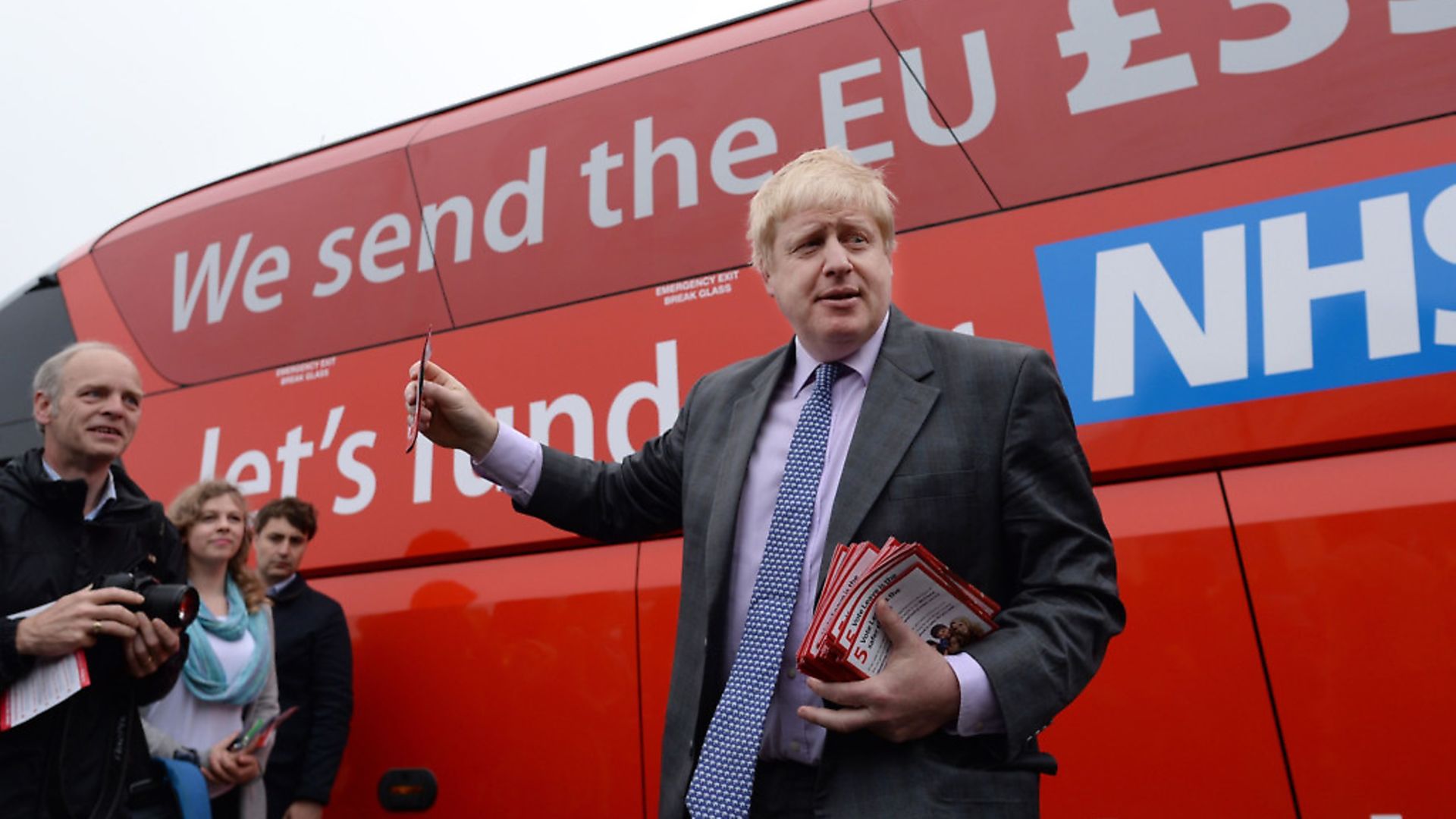
The date has been set for a court case which will attempt to hold Boris Johnson to account for the £350 million claim told during the EU referendum campaign – and was plastered all over the big red battle bus.
The crowdfunded private prosecution was brought against the MP and former Vote Leave co-chair by Marcus J Ball.
It will take place at Westminster Magistrates’ Court on May 14th from 2.00pm, with the first hearing held in private, followed by a second public hearing shortly after.
Ball, the 29-year-old private prosecutor, has accused Johnson of abusing public trust in his office as Mayor of London and Member of Parliament by intentionally misleading the public with regards to how much money the UK spends on EU membership.
The statistic was criticised as misleading by the head of the UK Statistics Authority, who said that it was ‘a clear misuse of official statistics’.

A study found that almost half of the UK still believes the figure after it continued to be used throughout the referendum campaign.
Ball has worked full time on the prosecution case since June 2016 in his effort to address lying in politics.
He said: ‘I believe that when politicians lie democracy dies. If a company director lies to shareholders about financial matters they can be prosecuted. If a self employed person lies to HMRC about their spending or income they can be prosecuted. If a member of the public lies to the police about an ongoing investigation they can be prosecuted. This is because society and public trust cannot function based upon false information. So, why shouldn’t a politician be prosecuted for abusing public trust by lying about public spending figures?’
He continued: ‘This case is a world first, it has never happened before. A Member of Parliament has never been prosecuted for misconduct in public office based upon alleged lying to the public. However, in 2014 PC Keith Wallis was given a 1 year prison sentence for misconduct in public office because of knowingly false statements he made. Mr Wallis lied to his MP and other police officers about witnessing the Plebgate scandal which took place on Downing Street on the evening of Wednesday 19 September 2012.
MORE: Subscribe to the newspaper for £13 and get this anti-Brexit mug FREE
MORE: I know about public inquiries. The Brexiteers face a reckoning
MORE: New poll finds 61% would back Remain in a second referendum
MORE: Nigel Farage says identity of Brexit Party’s £100K donor is ‘irrelevant’
‘My backers and I aspire to set a precedent in the UK common law making it illegal for an elected representative to lie to the public about financial matters. This would be the beginning of the end of lying in politics in the UK. Because of how the English common law works it’s possible that such a precedent could be internationally persuasive by influencing the law in Australia, New Zealand, Hong Kong, Canada and India’.
Warning: Illegal string offset 'link_id' in /mnt/storage/stage/www/wp-includes/bookmark.php on line 357
Notice: Trying to get property 'link_id' of non-object in /mnt/storage/stage/www/wp-includes/bookmark.php on line 37






